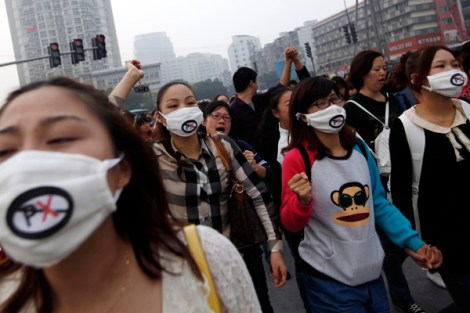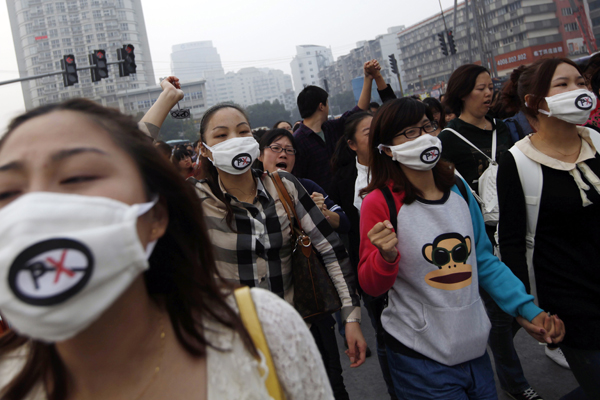Following days of raucous protests, residents of the city Ningbo in southern China have effectively shut down the government’s plans for an $8.9 billion petrochemical plant expansion.

ReutersProtesters take to the streets of Ningbo.
The Wall Street Journal points to the activist victory as a sign of societal change:
The Ningbo protests are the latest example of increasingly well-educated urban residents aggressively resisting the heavy industrial expansion that many local governments are encouraging to keep China’s economy humming. In addition, it highlights how local government bids to lure lucrative investments to their cities are meeting increasing scrutiny from concerned residents.
Protesters in Ningbo and in similar protests against a chemical refinery last year in the northeast city of Dalian have specifically targeted the production of paraxylene, or PX, a potentially hazardous chemical used to make the plastics that China churns out like mad. The protests signal a broader and more passionate eco-awareness growing in China.
Even though the government announced on Sunday that it would scrap the plant expansion in Ningbo, activists remain wary. From Businessweek:
In Ningbo, protests continued even after the authorities pledged to halt the PX project, in part because suspicion of the government runs so high. “We don’t trust them at all; we think [their promise] is a stalling tactic,” as one 30-year-old protester in Ningbo wrote in an e-mail to Bloomberg Businessweek on Monday. “We’ll still keep our eyes on them.”
And we’ll be keeping our eyes on the burgeoning eco-activist movement in China. From Time:
A Chinese city, a massive environmental protest, and a sudden retreat by the authorities. The pattern has repeated itself so many times in recent months that it seems only a matter of time before it happens again.
We’ll be waiting.



